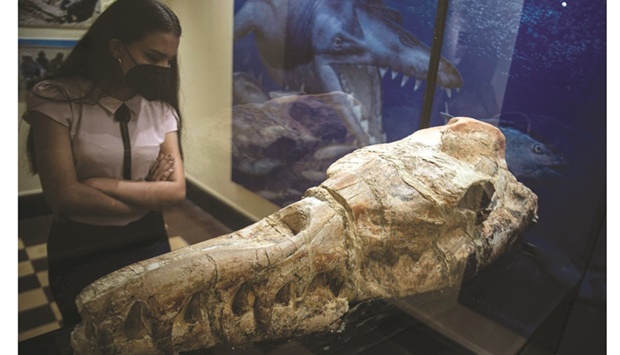Palaeontologists have unearthed the skull of a ferocious marine predator, an ancient ancestor of modern-day whales, which once lived in a prehistoric ocean that covered part of what is now Peru, scientists announced on Thursday.
The roughly 36mn-year-old well-preserved skull was dug up intact last year from the bone-dry rocks of Peru’s southern Ocucaje desert, with rows of long, pointy teeth, Rodolfo Salas, chief of palaeontology at Peru’s National University of San Marcos, told reporters at a news conference.
Scientists think the ancient mammal was a basilosaurus, part of the aquatic cetacean family, whose contemporary descendants include whales, dolphins and porpoises.
Basilosaurus means “king lizard”, although the animal was not a reptile; however, its long body might have moved like a giant snake.
The one-time top predator likely measured 12m (39’) long, or the height of a four-storey building.
“It was a marine monster,” said Salas, adding that the skull, which has already been put on display at the university’s museum, may belong to a new species of basilosaurus.
Scientists believe the first cetaceans evolved from mammals that lived on land some 55mn years ago, about 10mn years after an asteroid struck just off what is now Mexico’s Yucatan peninsula, wiping out most life on Earth, including the dinosaurs. –

A basilosaurus whale fossil dating back 36mn years is displayed at Lima’s Museum of Natural History after its discovery in the Ocucaje desert, Peru.
